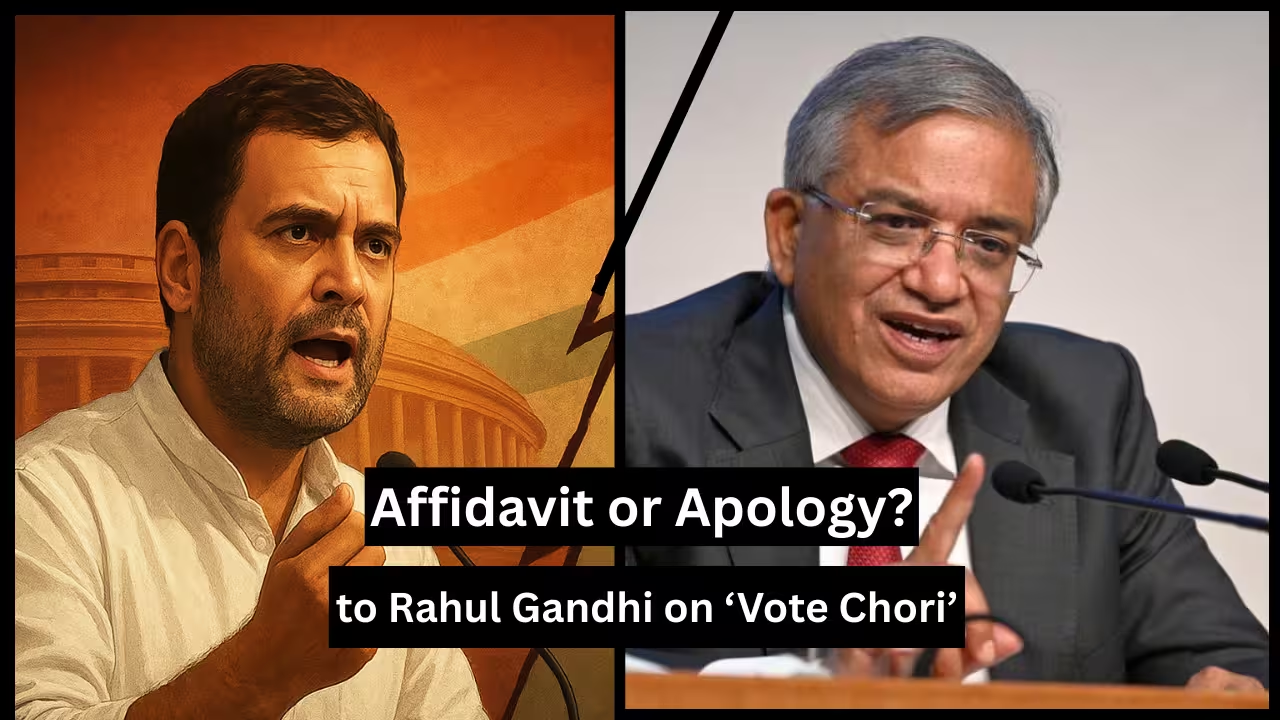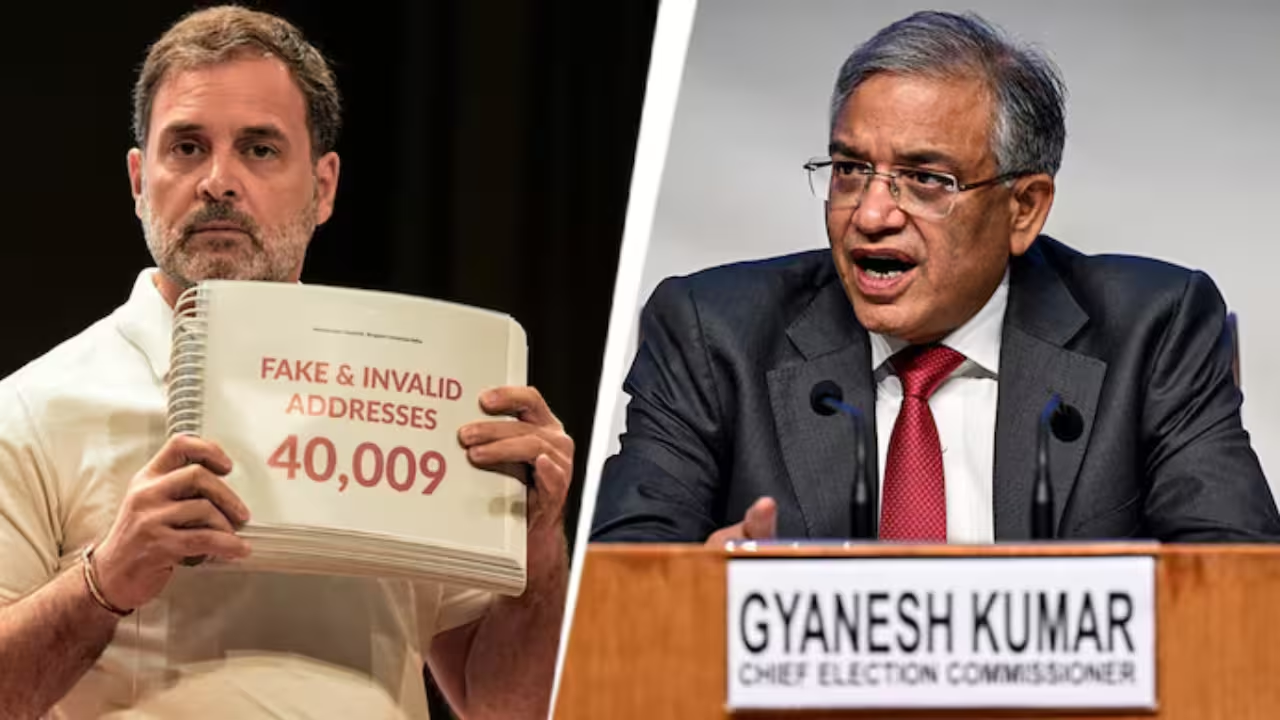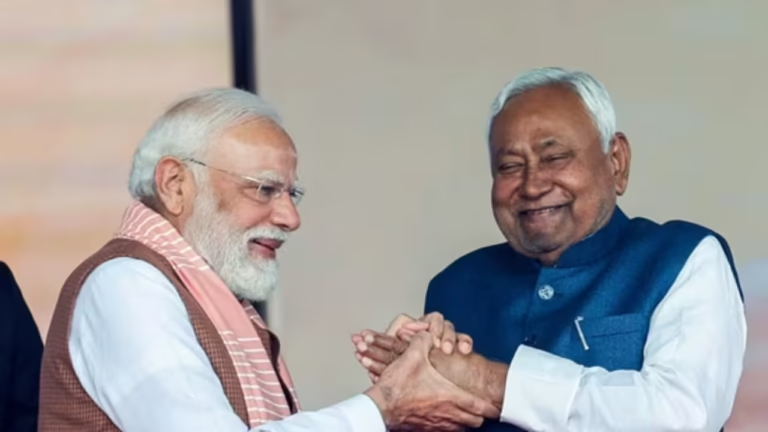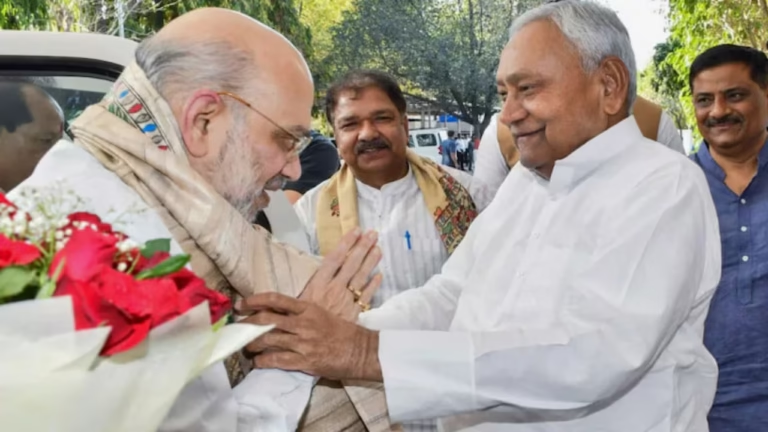
CEC issues ultimatum to Rahul Gandhi: affidavit or apology on ‘vote chori’ claims.
Published on: August 17, 2025 at 20:34
Did Rahul Gandhi uncover a major electoral scandal—or just spark a storm without proof? The Election Commission has thrown down a tough challenge, demanding he either back his “vote chori” claims with a sworn affidavit or apologise to the nation.
How the ‘Vote Chori’ Row Began

The political spotlight turned sharp this week when Congress leader Rahul Gandhi accused the Election Commission of India (ECI) of “vote chori” (vote theft). He alleged large-scale irregularities in voter lists—citing duplicate names, fake addresses, bulk registrations, and misuse of Form 6, particularly in Karnataka’s Mahadevapura constituency.
Rahul Gandhi’s charges stirred debate nationwide, but the Chief Election Commissioner (CEC), Gyanesh Kumar, hit back strongly, dismissing the claims as baseless. In an unprecedented move, the CEC issued an ultimatum: submit a sworn affidavit with proof within 7 days—or apologise to the nation.
This clash has quickly become one of the most talked-about controversies in Indian politics, raising questions about electoral transparency, accountability, and political responsibility.
CEC’s Response: Integrity, Process, and Accountability
The Election Commission’s rebuttal was firm and detailed, targeting both the language used and the credibility of the accusations:
-
On “Vote Chori” Terminology: The Commission called it a “dirty phrase,” arguing it disrespects voters and election staff who ensure free and fair elections.
-
Principle of One Person, One Vote: The CEC stressed that India has followed this rule since 1951, and such claims without evidence weaken public trust in democracy.
-
Countering Allegations with Facts: From “house number 0” entries to duplicate voter names, the Commission explained these were either clerical issues or already corrected through transparent verification.
-
Manipulation of Data: The CEC accused Rahul Gandhi of misrepresenting EC data, asserting that the public can see the truth through official records that are open and accessible.
The Commission’s message was clear: allegations against a constitutional body cannot be made casually without proof.
What Lies Ahead: The Stakes of This Ultimatum

The ultimatum has placed Rahul Gandhi at a critical crossroads:
-
Affidavit with Proof: He has 7 days to file a sworn statement backing his charges, which could potentially lead to a bigger legal and political storm.
-
Public Apology: If he apologises, it may weaken his stand but prevent legal confrontation.
-
No Action: If neither is done, the ECI has stated that the allegations will automatically be deemed false and defamatory.
This moment matters beyond just Rahul Gandhi or the Election Commission—it touches the core of India’s democratic integrity. For voters, it is a reminder that free and fair elections rely not only on transparent institutions but also on responsible political dialogue.
The standoff between Rahul Gandhi and the Election Commission is more than a political drama—it’s a test of accountability in Indian democracy. Whether Rahul Gandhi provides proof, apologises, or risks fallout, the outcome will shape public trust in both leaders and institutions.
As citizens, it’s a moment to reflect: political battles should never compromise electoral integrity, and truth must always stand stronger than rhetoric.






